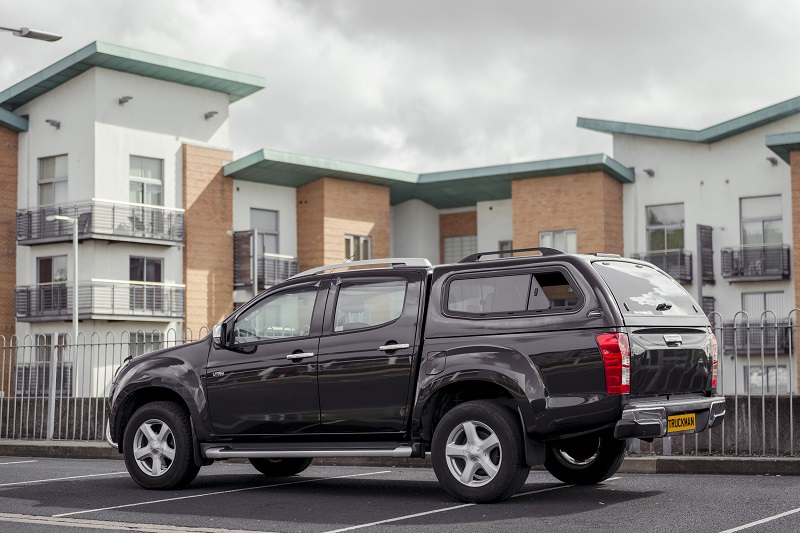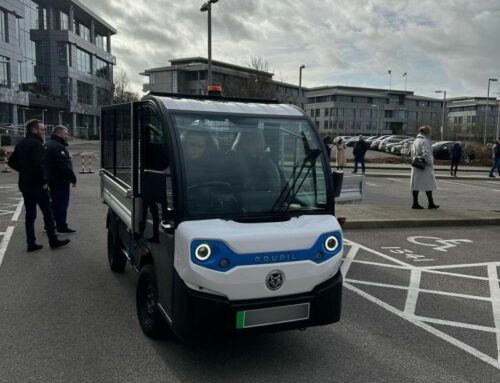CHOOSING a double-cab pickup as your company vehicle carries certain financial benefits? Namely, a lower tax rate.
If you read our report on double-cab van tax yesterday you may be able to guess where this is heading.
A recent legal ruling could go some way to clarify the definition of a van for tax purposes. Clarity is always preferable, in this case it’s absolutely imperative.
The official HMRC guidelines state that the definition of a van is a vehicle primarily designed for the movement of goods and that it must be manufactured accordingly. These guidelines clearly state that if a vehicle is designed to be multi-purpose or has windows in the side – even if no rear seats are fitted – it is unlikely to be a van.
Anyone who has looked at the variety of vans on the market will know that’s clearly not the case. A point demonstrated by the Judge who contradicted these guidelines in the ruling and consequently made the situation even more confusing.
According to the Judge’s ruling, one van with a second row of seats is a van, another van with a second row of seats is a car. This in spite of the fact that most rational people would say they were both clearly vans.
The Judge’s ability to tell the difference between a car and a van isn’t really relevant here. The issue is that the ruling contradicts the current guidelines leaving many small businesses and SMEs unsure of their tax liabilities.
There was – or is. It gets very confusing – an exception to these guidelines. HMRC were perfectly content to accept that a double-cab pickup with a payload in excess of one tonne is, for tax purposes, a van.
Obviously HMRC are going to have to redefine their guidelines on double-cab vans as a matter of urgency. By redefining what constitutes a van it’s not unlikely that double-cab pickup tax rates may inadvertently end up being reclassified too.
If that happens it could leave small businesses and SMEs facing increased tax bills on company vehicles. The vehicles they chose based on the same HMRC guidelines that confirmed their tax efficient status. .
According to tax consultancy, RSM UK, the guidance is confused. They are so concerned that even following the guidelines could leave businesses exposed, to the point they are recommending caution,
Employers should be mindful when relying on HMRC guidance in determining the taxable benefit arising on a company vehicle, as this may result in unexpected tax bills and possible penalties. The wider consequence of this case could be that double cab pick-ups are brought under review.
We’ve been highlighting the tax benefits of driving a double-cab pickup for quite some time . As well as being reasonably comfortable and well equipped the level of BIK tax payable is significantly lower compared to a car.
Those tax benefits could soon disappear if double-cab pickups get caught up in the maelstrom.
Not only that, the case that went before the Judge dates back to 2011-12 tax year so any changes could potentially be backdated six or seven years. How many small businesses and SMEs would struggle to deal with a tax demand that could be somewhere in the region of £2,000 per vehicle, per tax year?
There is clearly an issue if HMRC guidance has left businesses open to such a risk through no fault of their own. If HMRC can’t decide what constitutes a van how is anyone else supposed to know? And how could HMRC then come asking for backdated tax and keep a straight face? It’s ridiculous to expect anyone to calculate their tax accurately when even the people who make them don’t know the rules.
Double-cab pickups are immensely popular with small businesses because they are flexible. You can load them up with tools and equipment during the week, shopping bags and children at weekends. Builders, plumbers, electricians, and lots of other trades use them because they offer a great compromise.
If double-cab pickup tax does change it means all those businesses handing over even more of their income in additional taxation. If you are one of them all we can suggest at this stage is to keep your eye on the news, and your fingers crossed.







All Double Cab pickups and crew vans are taxed (RFL) in class LGV, (Light Goods Vehicles).
If they where a car they would be taxed as DC
The key issue here is not VED but use, and if used as a company car you are liable for full car BIK rates rather than far lower van rates.